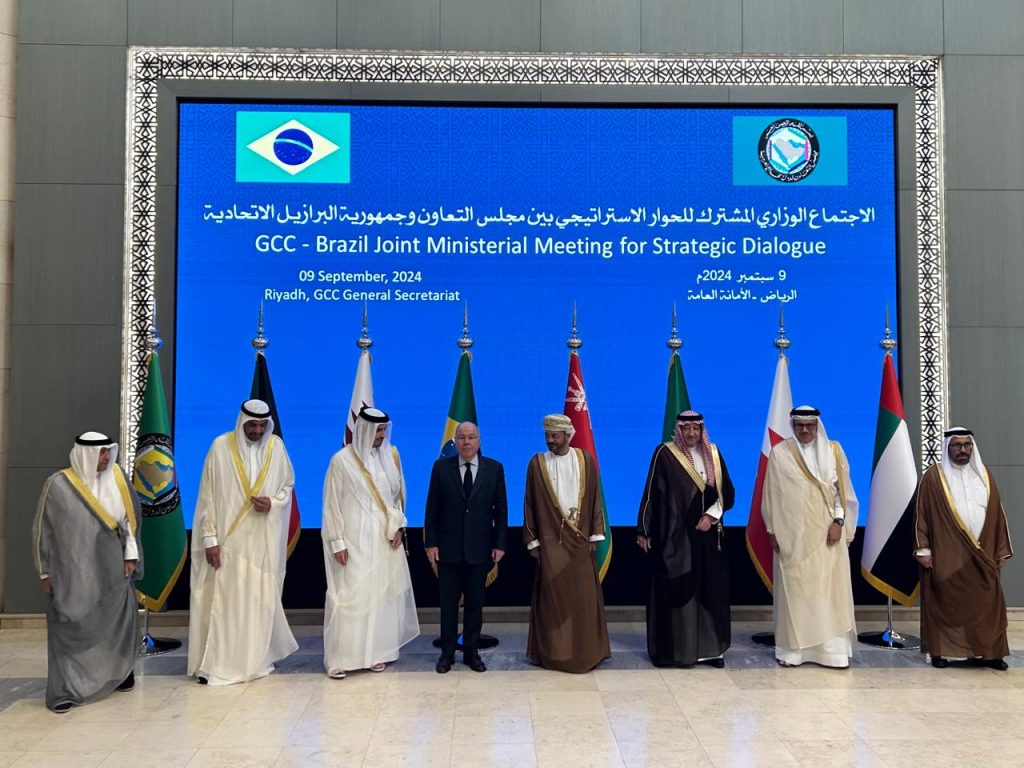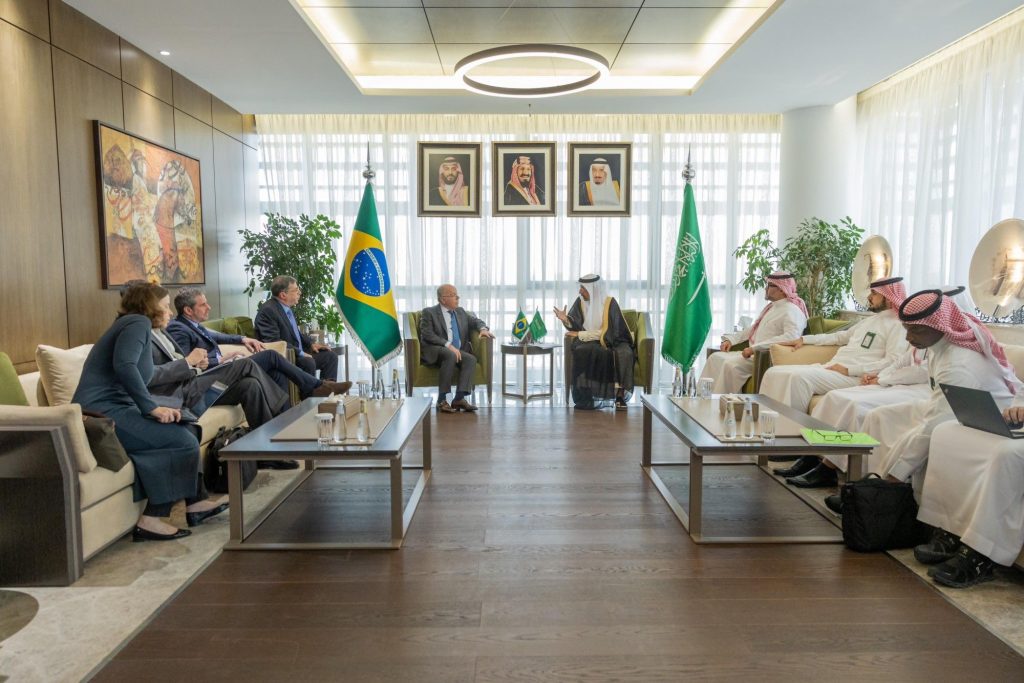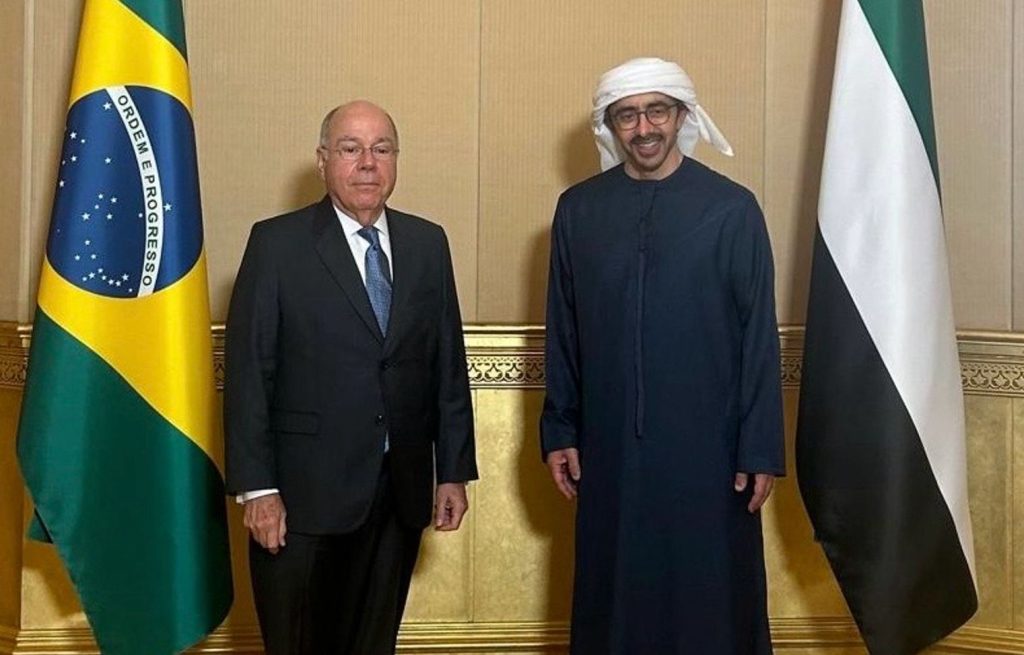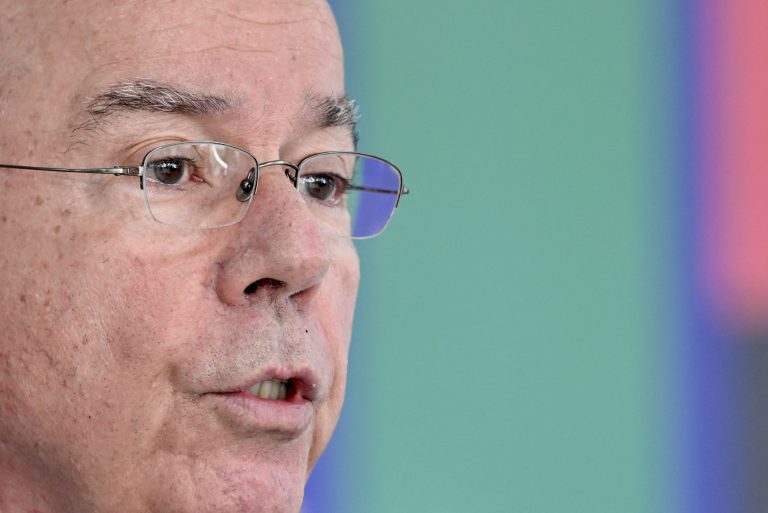São Paulo – Brazil’s Foreign Minister Mauro Vieira held a series of meetings with officials from the Gulf Cooperation Council (GCC) countries earlier this week and sees the start of a new, more promising phase in his country’s economic relations with the region. The GCC is composed of Bahrain, Kuwait, Oman, Qatar, Saudi Arabia, and the United Arab Emirates

Since last Sunday (8), the foreign minister has been in Oman and Saudi Arabia and is having appointments in the UAE on Wednesday (11). In Saudi capital Riyadh, Mauro Vieira represented the Latin American giant as a special guest at the GCC meeting and had sideline meetings with ministers from Bahrain, Kuwait, and Saudi Arabia.
“On behalf of Brazil, we signed a memorandum of understanding with the GCC that paves the way for a new and even more promising phase in economic relations with the region. And the GCC, by the nature of its role as a facilitator, is the ideal channel to energize this effort,” Mauro Vieira said in a written exclusive interview with ANBA.
The foreign minister says that the meeting has opened a new phase of strengthening high-level political dialogue with the GCC and its six member countries. “Although Brazil has traditional relations with all of them, this new moment coincides with a completely new economic and social reality, and certainly much more promising,” he says.
Mauro Vieira says that President Luiz Inácio Lula da Silva’s visits to the region and the mobilizing power of presidential diplomacy allowed the identification of broad business opportunities in various sectors last year. “My visit to the region aimed to follow up on ongoing contacts between the governments, as well as to reiterate our interest in concluding the trade agreement between Mercosur and the UAE,” he says.
The minister sees his country as having an enviable political position in the region. “The entire world is competing for spaces, partnerships and opportunities in the Gulf, and Brazil has an enviable political position that needs to be translated into increasingly dense economic relations,” he says.
He notes that President Lula is directly engaged in the effort to strengthen ties with Gulf countries, having made bilateral visits to the UAE, Qatar, and Saudi Arabia since taking office, in addition to participating in COP28, the United Nations Climate Change Conference, in the UAE.
Vieira says that, during his visits to the region this year, he hear unanimous recognition from interlocutors regarding Brazil’s firm stance since the beginning of the humanitarian crisis and hostage situation in Gaza last October.
Private sector
The foreign minister draws on the remarks of Saudi Arabia’s Minister of Investments Khalid Al-Falih, with whom he met after the GCC meeting to discuss the relationship between the countries in the region and Brazil. “He described the recent rapprochement with Brazil as ‘phenomenal,’ and I fully agree with him, as he has recently been to our country,” he says.

According to Vieira’s account of the visit, Minister Al-Falih expressed enthusiasm about ongoing negotiations with the Latin American country in various areas, ranging from food security to logistics, commercial aviation, and defense. “And this is closely related to the engagement of the Brazilian private sector, which has been very important,” he says.
For the foreign minister, the strengthening of political dialogue with the region, prioritized in President Lula’s foreign policy, also paves the way for the private sector to explore the opportunities these markets offer.
Mauro Vieira said that what impressed him most in the high-level contacts in Riyadh was the knowledge of his interlocutors about the Brazilian economy and the major international companies and banks in the country. “This knowledge is the foundation for what will come in terms of boosting trade and attracting reciprocal investments,” he said.
After visiting Oman, the minister highlights the presence of Brazilian companies with significant investments in the country, particularly in the food and mining sectors. “This is quite encouraging,” he says. The foreign minister recounted that he discussed with the Omani Ministry of Agriculture new potential avenues for partnerships, with the complementary nature of the economies creating new opportunities for Brazilian agribusiness.
United Arab Emirates

In the UAE, Mauro Vieira met with Foreign Minister Abdullah bin Zayed Al Nahyan and Foreign Trade Minister Thani bin Ahmed Al Zeyoudi. According to Brazil’s Foreign Affairs Ministry, Vieira discussed mutual interests with Al Nahyan, focusing on the preparation for the visit to Brazil by the President of the UAE, Mohammed Bin Zayed Al Nahyan.
The meeting with Al Zeyoudi focused on Brazil-UAE trade and the UAE’s negotiations with Mercosur, with a new negotiating round scheduled for October. The UAE is negotiating a free trade agreement with the bloc.
Read more:
Relations with GCC a top priority for Brazil
Translated by Guilherme Miranda




